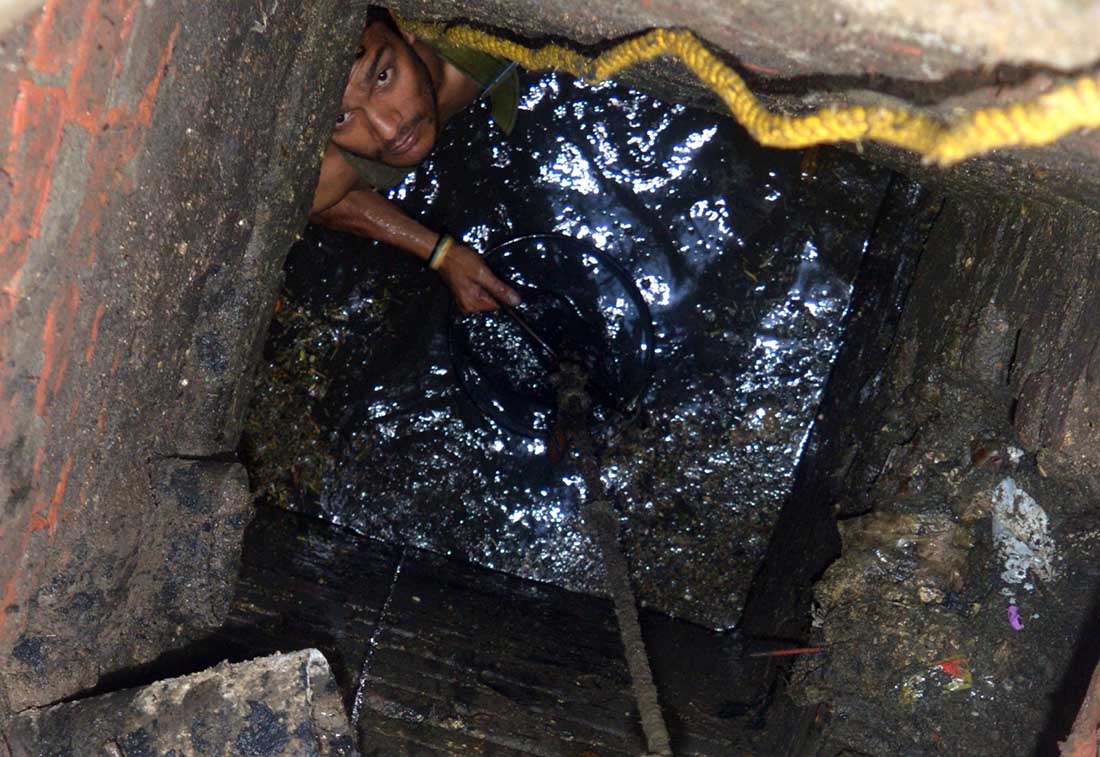
Manual scavenging deaths: Centre to amend law for mechanised cleaning

One of the most glaring shames of modern India is its failure to eradicate manual scavenging. Official records show that manual scavenging has led to 376 deaths over the past five years, including 110 in 2019 alone — a rise of 61 per cent from 2018.
The Ministry of Housing and Urban Affairs has taken up measures, including recommending the Manual Scavenging Act to make mechanized cleaning of sewers and septic tanks mandatory. It has also recommended replacing the word “manhole” with “machine-hole” in official usage and setting up of a national 24×7 helpline to report violations.
The Centre on Thursday launched a “challenge” for all states to make sewer-cleaning mechanized by April 2021. If any human needs to enter a sewer line in case of unavoidable emergency, proper gear and oxygen tanks and other tools are to be provided, it said.
Related news | Manual scavenging still thrives, courtesy lack of political will
The challenge entails prize money in various categories totalling ₹52 crore. “The actual on-ground assessment of participating cities will be conducted in May 2021 by an independent agency and results will be declared on August 15, 2021,” said Durga Shanker Mishra, Secretary, Ministry of Housing and Urban Affairs.
“We have instructed that the word manhole is not to be used anymore and only machine-hole is to be used from now on,” said Mishra.
The Ministry is also tying up with MTNL to roll out a national 24X7 helpline number where such cases can be reported.
On the challenge, officials said that urban local bodies, state capitals and smart cities are eligible to participate. They said the 243 cities that are eligible to participate will be split into three sub-categories based on population: up to 3 lakh, 3-10 lakh and over 10 lakh, with prizes ranging from ₹8-12 crore.
Related news | ‘Who will save the saviours?’ COVID plunges sanitation workers in deeper sinkhole
With Swachh Bharat Mission identified as a top priority area by the 15th Finance Commission, and funds available for smart cities and urban development, Union Minister of Housing and Urban Affairs Hardeep Puri said the money needed to shift to mechanised cleaning would not be a constraint.
The Social Justice and Empowerment Ministry has decided to directly provide funds to workers to purchase cleaning machines, instead of giving money to contractors or municipalities, said R Subrahmanyam, Secretary, Ministry of Social Justice and Empowerment.
The employment or engagement of people to manually clean drains, sewer tanks, septic tanks is an offence punishable by imprisonment and fine under the Manual Scavenging Act, 2013. As per the provisions of the law, manual scavengers are to be identified and rehabilitated.
However, the problem persists in urban areas, said Subrahmanyam. “The amendment in the law will make mechanised cleaning mandatory. It should not be optional…some municipalities like Hyderabad, etc., have done wonderful work in mechanising the system. But it should not be a best practice, it has to be the only practice,” he said.
According to an assessment by the Social Justice Ministry, despite the Manual Scavenging Act and Prevention of Atrocities Act, 1989 being in place, FIRs are seldom lodged in deaths caused by this practice, convictions are rare, and the Supreme Court-mandated compensation of ₹10 lakh is not paid in all cases.


